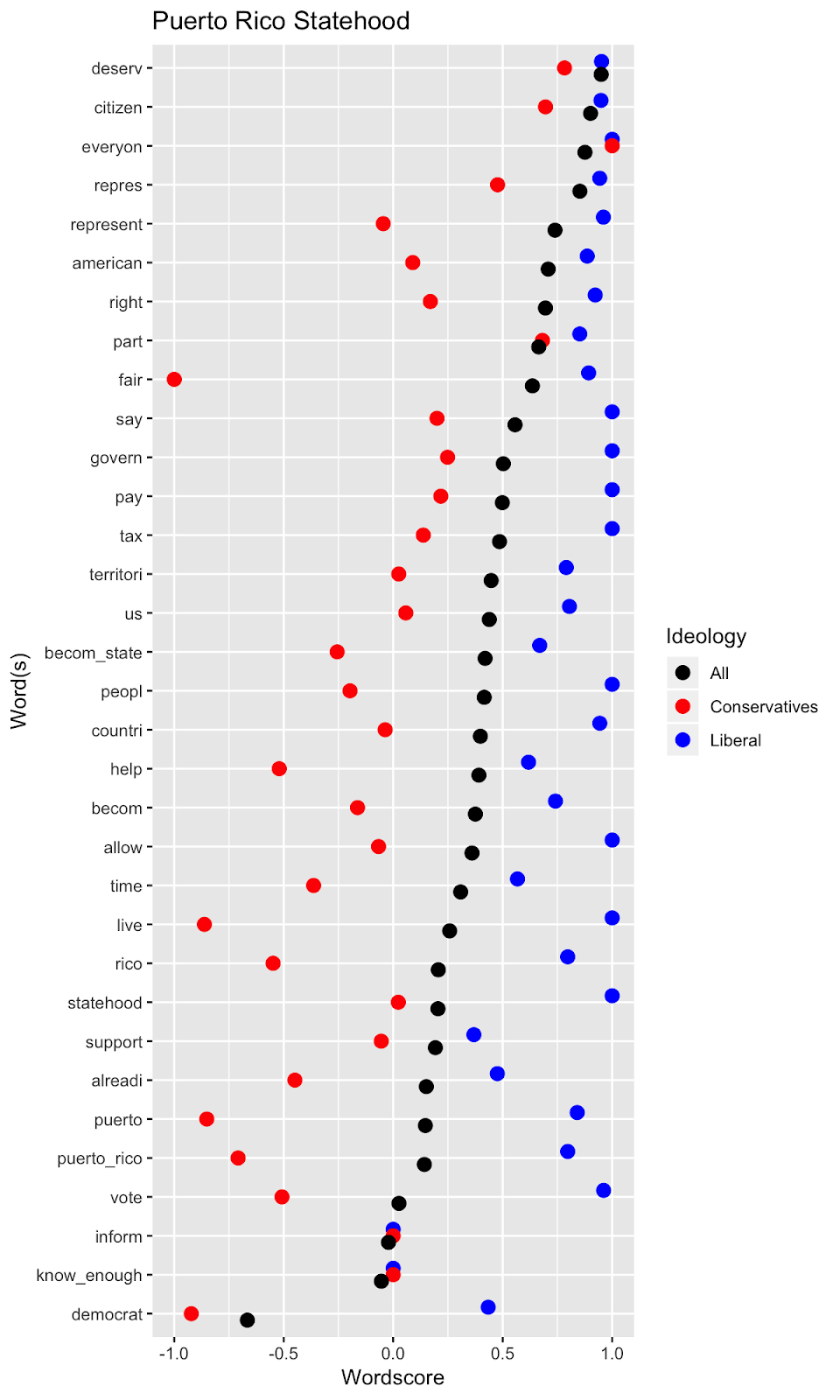data demystified #4: How liberals and conservatives talk about progressive issues
By: Kevin Reuning (@KevinReuning)
Partisanship and political ideologies do not just shape how people vote. Ideology and partisanship dictate how individuals view political issues, the values they emphasize and the way they understand how values connect to issues. It is critical then, when talking about new political issues, to examine how voters understand those issues. In this post we are going to look at why voters say they support or oppose a variety of progressive issues, and how liberals and conservatives frame that support differently.
Data for Progress has worked with Civis Analytics to poll voters on support for a variety of progressive issues and then ask them why they take that position. Using these responses we can begin to illuminate differences in how liberals and conservatives view these issues, and hopefully have some indication on how language might appeal across groups.
To find out how variation in language relates to support or opposition I used a method called wordscores developed to analyze the political ideology of texts. It is a supervised machine learning method that uses the words (or tokens) in each document to identify the ideology of a document. It starts with a set of documents that have a known ‘ideology’. I used the question asking survey participants if they support or oppose a position as a marker of their ideology on that position, giving them a +1 if they supported the progressive position, -1 if they opposed it and 0 if they were uncertain. From this I trained a model identifying how the prevalences of different words are associated with ideological position-taking. Although the wordscores model is more commonly used to identify large corpus of documents without having to code them all, it also provides metrics on the relationship between words and the ideology.
After extracting the scores for each word trained on the entire dataset I then re-trained a model just using liberal or conservative participants. This allows us to compare how different subsets of individuals use words to relate their positions. Before estimating the models I also cleaned the data by removing very rare words and stop words (like “the”); stemming the words; and then creating n-grams (connecting words that are used together).
First are estimates on the corpus of support for free tuition. The black dots show the wordscores estimated on the full corpus. These scores reflect the frequency of a word as well as its valence. High scores indicate that the word is most commonly used only among those who are supportive of the policy. Negative scores indicate the opposite. Some language, such as “support” does not provide a lot of information about what supporters think, but others such as “opportun”, “debt”, “income” do provide insight. Language that discusses the opportunities of higher education are associated with support while those that reference taxes or work are associated with opposition to this policy.
The red dots show the estimates from only the conservative corpus while the blue dots show the estimate from only the liberal corpus. The clearest disconnect is that language that discusses debt or loans is employed differently by liberals and conservatives. Conservative use this language to talk about their own experiences and how they achieved even with loans. Take this example from someone who identifies as very conservative and opposes free college tuition: “I came from a poor economic background, and I have student loan debt. It [was a] choice to enroll in college. It is the student's responsibility to pay, not taxpayers.”
In contrast, when liberals talk about loans in the context of tuition it is still about their own experiences, but they see it as not wanting others to face the same burden. An example from a strong liberal who supports free college tuition: “Great wish they would have had it when I went to college instead I was burdened with loans which kept me poor.” In talking about education then, we should focus on its ability to open opportunities for all Americans not just the rich. Although discussing personal experiences with debt will draw in support from liberals, conservatives are more likely see this as a failing of someone who was not able to overcome their own debts.
We also can look at differences in the language of support for Puerto Rico statehood. There is a lot of overlap in language. Discussions of citizenship, and equality are related to support across ideologies. However, digging down further reveals important differences. Conservatives use fairness as a reason to oppose statehood. They believe that it is unfair that Puerto Rico would become a state and so give Democrats more votes in the Senate -- an objection that was explicitly mentioned in the frame/counterframe question wording. You see this also in the relationship with the word “Democrat” which is used in a verty polarized way. This statement from a conservative who opposes statehood perfectly demonstrates this: “If they are all leanign [sic] democrat, that is not a fair balance.”
Language is important. We need to be aware of how conservatives and liberals employ language differently. This is not to say that we should only rely on conservative language in talking about issues that are important to us. But we need to understand how we can employ language we already use to broaden our base.
Kevin Reuning (@KevinReuning) is an assistant professor of political science at Miami University.
Based on multiple Data for Progress (@DataProgress) / Civis Analytics surveys fielded between February 15th and August 2nd 2018, with an average sample of 5,925 likely 2018 voters. See question wording and more data analysis here.



